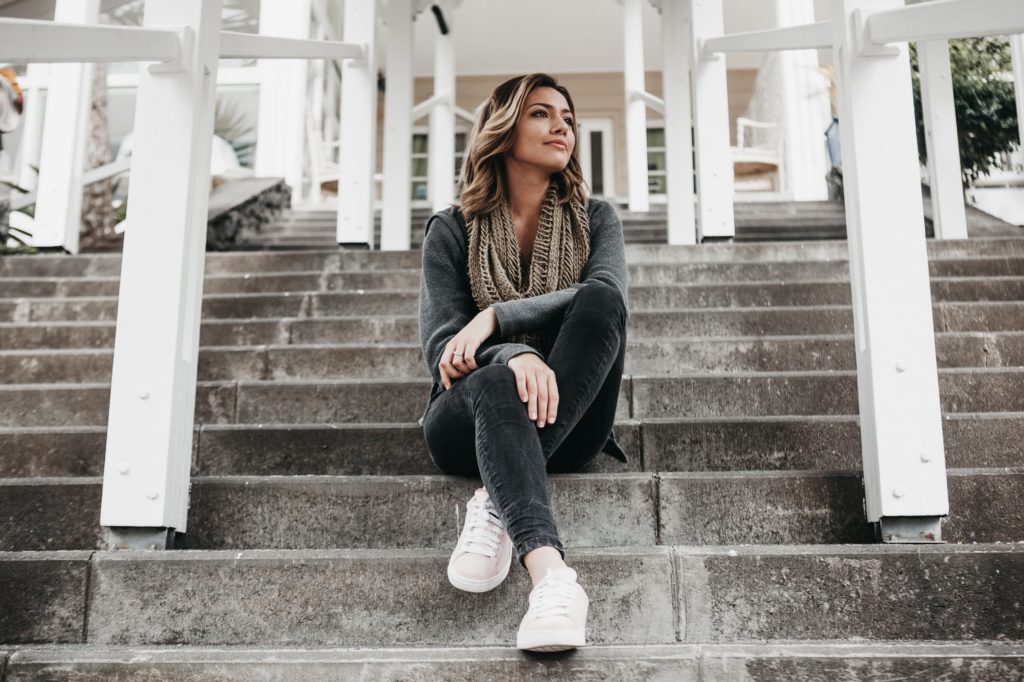To Sleep or To Exercise: That is the Question

Some competitions are legendary. Like when Mohammed Ali faced off against Joe Frazier in their famous Rumble in the Jungle match 50 years ago. That time pop stars Brandy and Monica dueled over a guy in their 1990’s hit “The Boy is Mine,” returning to recreate the magic in a popular Verzuz Instagram Live battle last year.
Batman battling the Joker, Coke vs. Pepsi and the list goes on. But all of that pales in comparison to one of the eternal struggles of wellness for time-crunched souls — the choice between exercise and sleep.
Both do wonders for your well-being. The U.S. Department of Health and Human Services notes that sleep improves your immune system, stress response and mood, promotes clearer thinking and better interpersonal skills, allows people to stay at a healthy weight and lowers the risk of developing serious health problems.
According to the Mayo Clinic, the benefits of regular physical exercise include better weight management, boosting your mood and energy, improving your sex life, reducing disease risk and improving your sleep. In other words, there is a lot of cross-over goodness from getting enough sleep and exercise.
Now this doesn’t have to be an either/or proposition. In an ideal world, you get plenty of both. But with constant distractions and never-ending professional and personal commitments, sometimes you don’t. That’s when the choice has to be made between catching enough shut-eye to sustain you for the day or heading to the gym.
Such is the quandary faced by my fellow early morning exercisers, those of us who wake up at the crack of dawn to get our fitness in before work each day. And for years, I had my favorite. Yup, I’d pick exercise, each and every time.
My rational was that sweating it out for an hour would wake me up better than a jolt of caffeine. I skimped on sleep well into my thirties, so it seemed a no-brainer to choose movement. Then things started to change.
I couldn’t get by on less than five hours of sleep anymore, take a spin class and still form coherent sentences at work. By my forties I needed more consistent sleep in order to function like a semi-intelligent human, all of which intensified once I turned 50. Now, I place an equal priority on both.
One of the silver linings of the pandemic is that I’m not spending the same amount of time commuting to work, so I can usually snag seven hours of sleep — my body’s happy place — most of the time. And if I have a bout of sleep deprivation, I will skip the exercise and just pick it up harder the next day.
Each person is different in this regard. So I turned to fitness professional Kim Miller, Owner of Fit & Happy Personal Training, to get some expert advice on the topic. In addition to her passion for exercise, Miller understands the importance of sleep better than most after being diagnosed as an insomniac when she became pregnant with her first child over 12 years ago.
Here are a few things to note:
Get True Rest
Out the gate, I asked Miller what is more important for a person’s overall wellness, exercise or sleep. Cue the imaginary drum roll, please. Her answer is…sleep. Which makes me want to curl into a ball a take a cat nap right now, or perhaps that’s because I’ve written this on a lazy Sunday afternoon instead of during an intense work week. But I digress.
“I definitely believe that sleep is the first factor in overall wellness,” said Miller. “It does not take eight hours as once thought, but a concentrated effort to truly rest your mind and body for anywhere between six and eight hours. Our society is so ‘on’ these days, mostly because of technology, so just being able to shut down is the first step.”
The COVID-19 pandemic hasn’t helped matters for most people. Miller believes that the pandemic has created an environment where people are resting too much, sabotaging themselves by always having blue light technology from smart devices in their hands. “The mind and body do not get to truly rest unless we are completely turned off. All of the time on Zoom, social media, etc., does not allow for that,” she continued.
These unpredictable times have also caused a shift in the way people exercise and move. You need to consider social distancing, wearing masks and safety protocols at fitness facilities while some people have invested in home-based equipment that allows them to minimize contact with others.
“You absolutely must be more intentional about exercise these days,” said Miller. “Some people have been able to adjust well and pivot into their new fitness routine while others have simply given up and are just waiting out until we are able to get back to normal. Sadly, I do not believe that will ever actually be the case.”
Handling Exhaustion
Defining exhaustion as a few steps beyond being simply tired, I wondered is it better catch up on sleep or push through it with exercise when you find yourself in that state. Seeing both sides of the equation, she feels this is a decision each individual needs to make for themselves.
“My professional opinion is that in that place, it is best to do a small workout in order for your body to shut down more efficiently,” noted Miller. “In my personal opinion, that is obviously hard to do if you are exhausted. I have been able to simply walk or do a body weight routine when I struggle with sleep myself.”
Trial and Error
Determining the right amount of exercise and sleep for your best health is often a process of trial and error. These days, my formula for feeling great is seven hours of sleep most nights. I usually exercise six days a week for an hour or longer, doing strength training with cardio bursts three days a week, one spin class and one Pilates reformer class and then another day or heavy cardio at the gym or outside.
Miller recommends tracking your habits to see what works best for you. “I am a big fan of pen and paper,” she said. “Therefore if I get into an unhealthy routine, I start writing down my sleep hours, exercise time as well as nutrition to see what needs to be adjusted and fiddle with the numbers until I find a better balance for me personally. Just being aware is the first, very important step.”
Embrace a Routine
I’ve read so many great books on building healthy habits, from Jeff Haden’s The Motivation Myth to Atomic Habits by James Clear. One thing they have in common is the importance of establishing an attainable routine and then repeating it each day to reinforce desired behaviors. Miller couldn’t agree more.
“The best advice I have is to definitely set a routine and stick to it,” she explained. “With sleep, set a certain time to turn off electronics, use a heavy blanket to get better sleep, read a book before bed, keep pen and paper on your bedside table, etc. You have to find a routine that works for you and make it stick no matter what. With fitness, try to find your personal optimal time to exercise and do your best not to let that slide.”
What do you place a higher priority on when forced to make a choice — exercise or sleep? How has that shifted over time?
